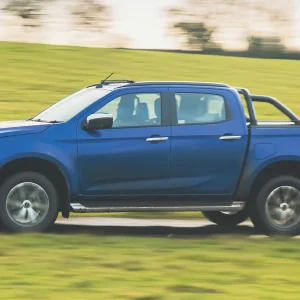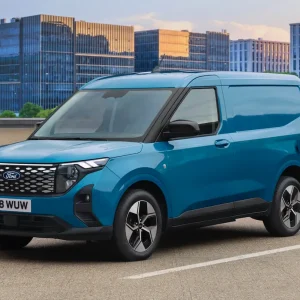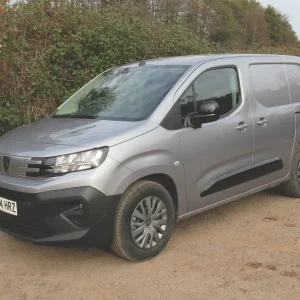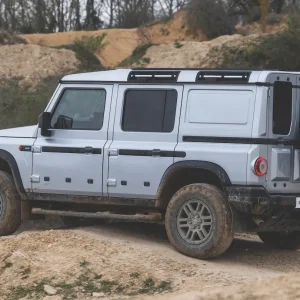The six-speed manual gearbox is slick and smooth, and together with the sharp and steady steering makes driving the Amarok in urban situations a relaxing and stress-free experience despite its bulk.
Out on the open road we found there was plenty of power on tap (the 122hp delivers peak torque of 340Nm) but for operators regularly undertaking long journeys with heavy loads on board the 163hp or the incoming 180hp engine might be a better bet.
Payload is a competitive 1119kg but towing capacity falls a little short of the 3.0-tonne mark, which is reached by the Isuzu D-max and exceeded by the Ford Ranger.
However, the 122hp Startline breaks the 200g/km marker, matched by only a few of its rivals, while the official fuel economy on the combined cycle is a frugal 37.2mpg.
Build quality matches VW’s usual high standards, and interior quality and practicality is understated and impressive. The cabin gets semi-automatic aircon, storage drawers under the front seats, a 12V socket in the centre console and a decent two-speaker radio/single CD player.
The Startline rides on 16-inch alloys and comes with a full-size spare. The black rear bumper includes an integrated step to ease access to the load area, which has four load lashing rings. The front bumper, door mirrors and handles and wheel arch extensions are body-coloured.
ESP anti-skid control is standard, which is not a given on entry-level models, and other safety features include the automatic activation of hazard lights under heavy braking.
On top of the standard equipment, our test vehicle also included metallic paint (£450), while retailer-fitted accessories comprised a tool box in the cargo area, which was a little tricky to lock and release and would set you back £323, and rear parking sensors for £272 – always a sensible option.
Verdict
A well-built, competent and refined entry-level pick-up ideally suited as a working vehicle for lower mileage operators.





